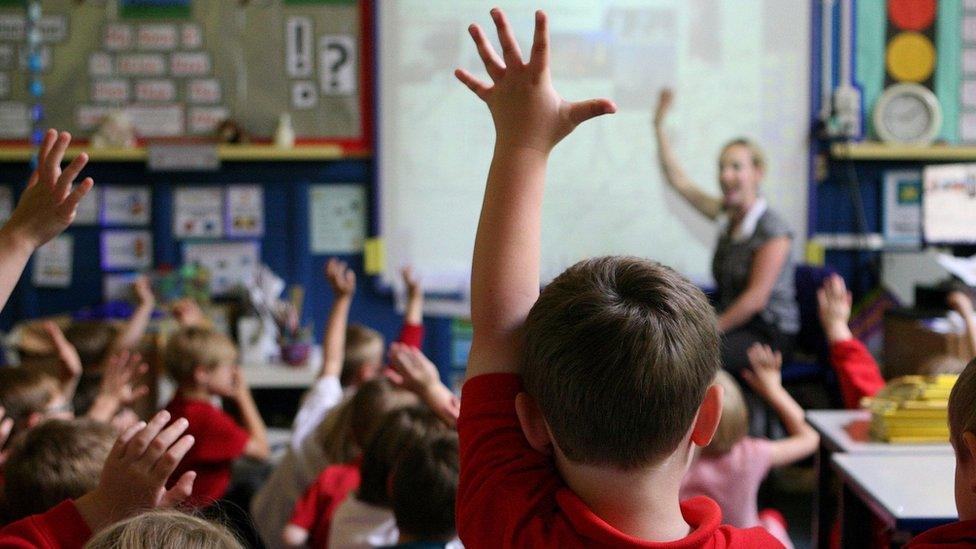Integrated education: Plan to block bill 'regressive'
- Published
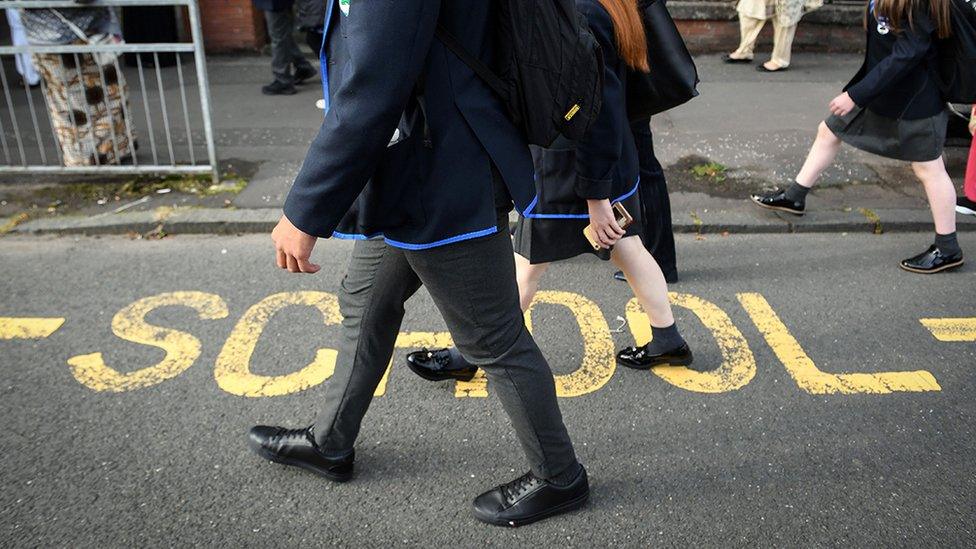
The bill would lead to the promotion, reform and expansion of integrated education
It would be a "regressive step" if a petition of concern is used to block a bill on the promotion of integrated education, Sinn Féin has said.
Alliance MLA Kellie Armstrong has proposed the piece of legislation.
Its final stage of debate is due on Wednesday, but the Democratic Unionist Party (DUP) has vowed to oppose it.
The bill needs the signatures of 30 assembly members for a valid petition of concern to try to veto it.
Sinn Féin and the SDLP support Ms Armstrong's bill, but the Ulster Unionists (UUP) are also set to vote against it.
However, UUP sources say no final decision has been made on whether its MLAs will sign the petition of concern.
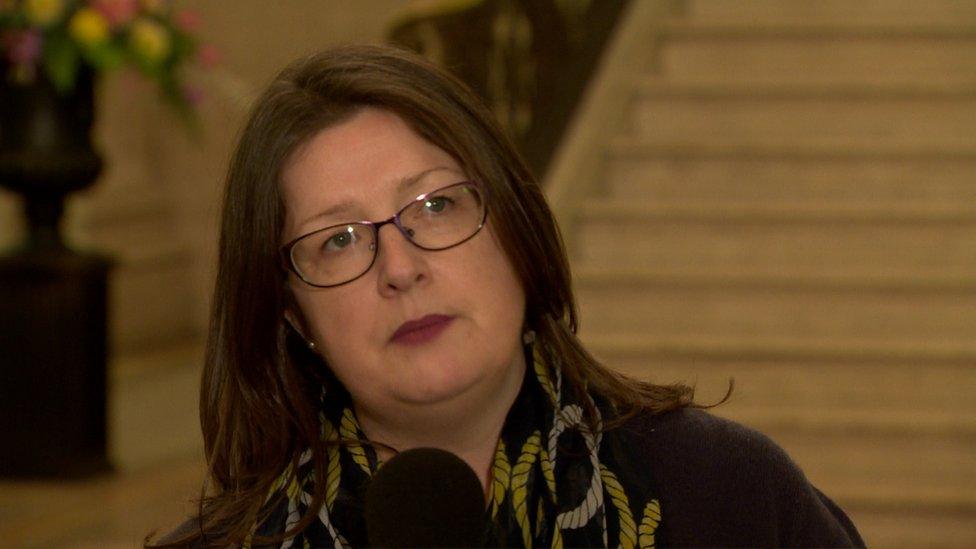
Alliance MLA Kellie Armstrong proposed the bill
The DUP currently has 25 MLAs who hold the party whip, while Jim Wells, independent Alex Easton and TUV leader Jim Allister are also in favour of the petition.
That means at least two UUP MLAs would need to sign it.
Ms Armstrong's bill would increase the number of integrated school places and set targets for the number of children being educated in such schools.
About 7% of pupils in Northern Ireland are educated currently in just under 70 formally integrated schools, which aim to mix pupils from Protestant, Catholic and other backgrounds.
However, some non-integrated schools also have a mix of pupils from different religious backgrounds as well as those who are not religious.
The head of Northern Ireland's oldest integrated school, Lagan College, has said Ms Armstrong's bill would "provide genuine and much-needed choice" for parents.
However, some other schools have written to parents claiming it would "elevate integrated schools" above other types of school.
Those concerns have been echoed in an open letter by five bodies that represent many schools and the four main churches.
On Monday, DUP leader Sir Jeffrey Donaldson insisted his party would try to use the petition of concern to stop the bill from passing.
Ms Armstrong told BBC's Talkback programme on Tuesday that her intention was to promote, reform and expand integrated education and would not "skew the pitch" of parental choice.
"I have worked with others during this process... this bill has the fingerprints of all parties on it," she added.
Sinn Féin's Pat Sheehan said his party would back the legislation as it was about putting integrated education on an "equal footing" with other sectors.
"It seems ironic that on a piece of progressive legislation, that unionism might try to block that progress. That says a lot about unionism - it says 'let's maintain the status quo'," he said.
But DUP MLA Diane Dodds said there was "nothing regressive" about using a petition of concern.
"It's over to Doug Beattie and the UUP - are they going to sign this and stand up for children right across Northern Ireland, or are they going to allow a bill that only supports one sector through?"
Any vote in the assembly can be made dependent on a petition of concern if it is supported by 30 MLAs - meaning the motion will only pass if it has cross-community support.
The purpose is to protect one community from legislation that would favour another.
But critics of the mechanism previously argued that it had been "abused" by larger parties, seeking to block issues they did not support.
In January 2020, the parties agreed to reform its use and, if it is successful this week, it will be the first time it has been used since Stormont's institutions returned two years ago.
Related topics
- Published4 March 2022

- Published17 February 2022
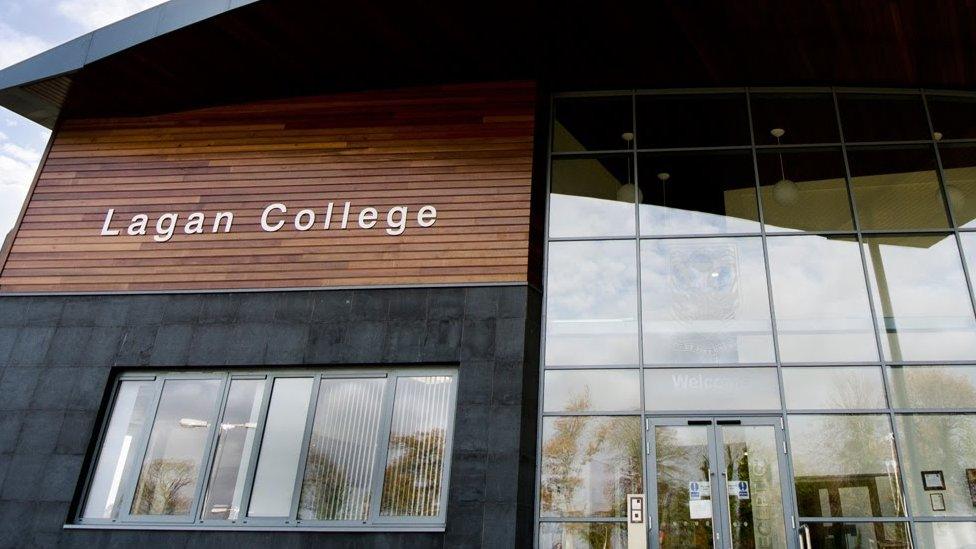
- Published8 July 2021
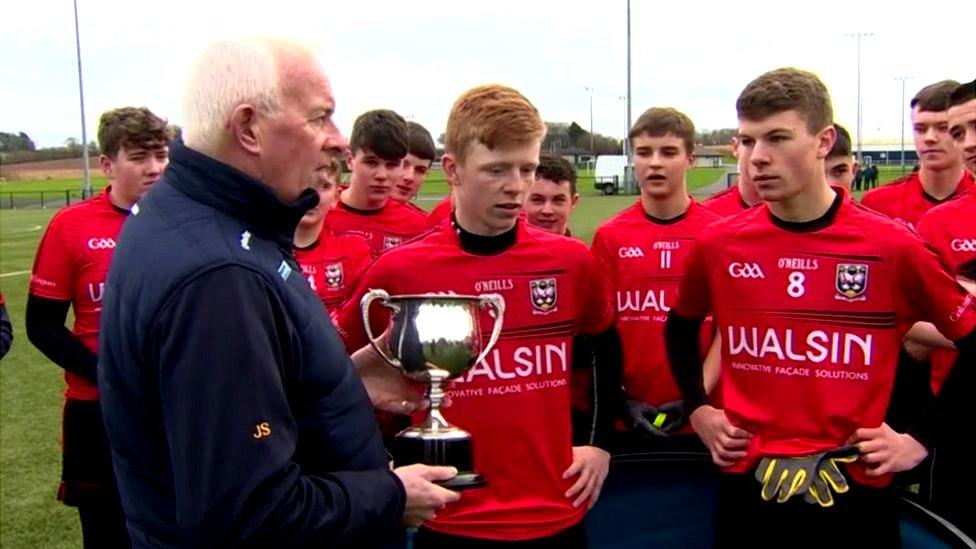
- Published8 December 2021
